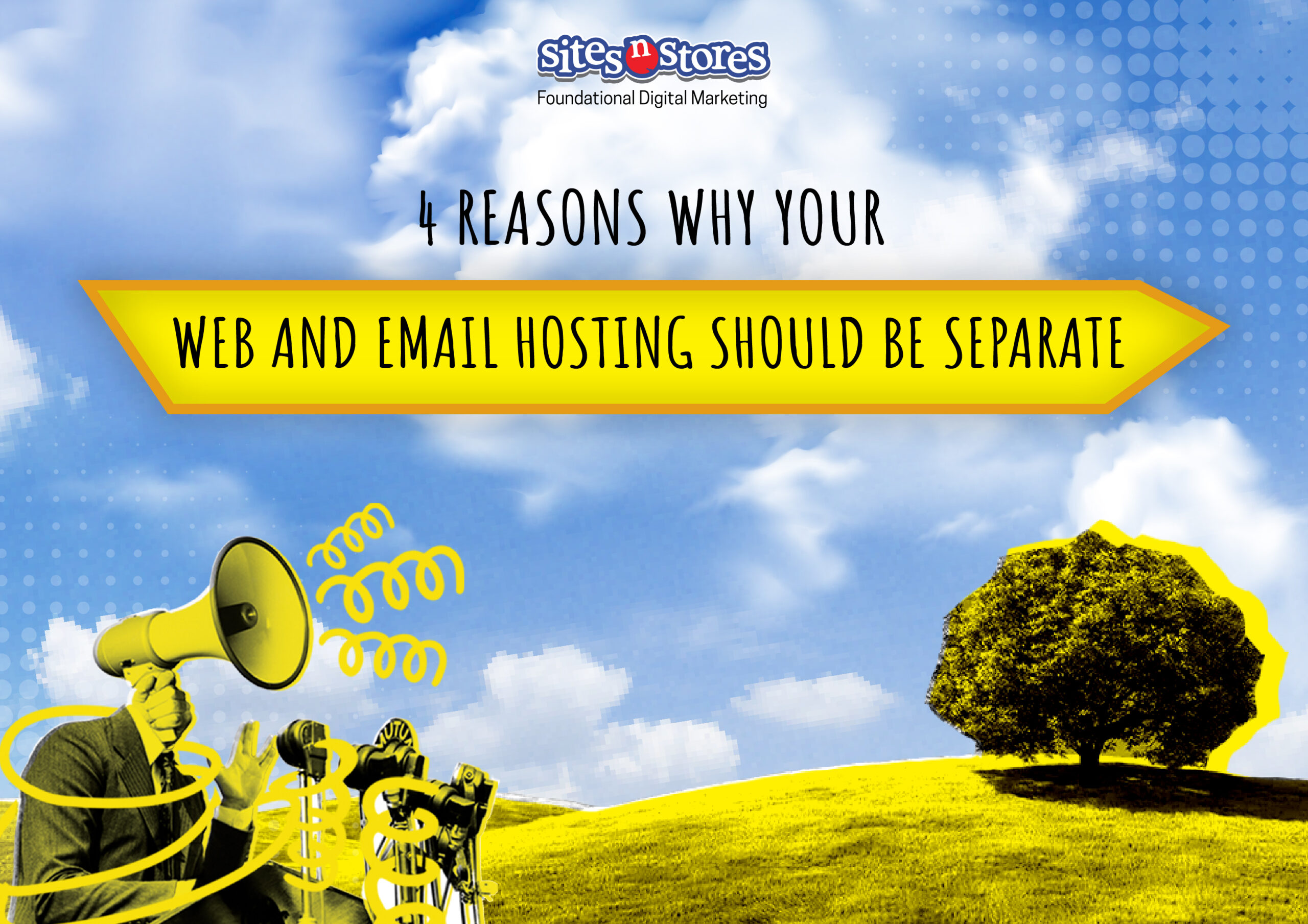As a Small Business Owner, Email plays a crucial role in the success of your business. A reliable, steadfast Email will guarantee optimum communication between you and your customers, allowing for stronger relationships and a smoother purchasing process. In this way, it’s vital to ensure that your Email is working effectively, or else you could run the risk of losing business, or getting a poor reputation for slow response rates.
Many Web Hosting companies will offer Business Owners the chance to host their Website and Emails on the same server, which made sense a few years ago when there weren’t that many Email options out there. But now, with so many reliable Email Hosting choices made readily available, it makes much more sense to host the two separately.
At Sites n Stores, we want to make your Small Business experience as simple and stress-free as possible, which is why we’ve put together this list of 4 reasons why you should really consider keeping your Emails separate from your Web Hosting.
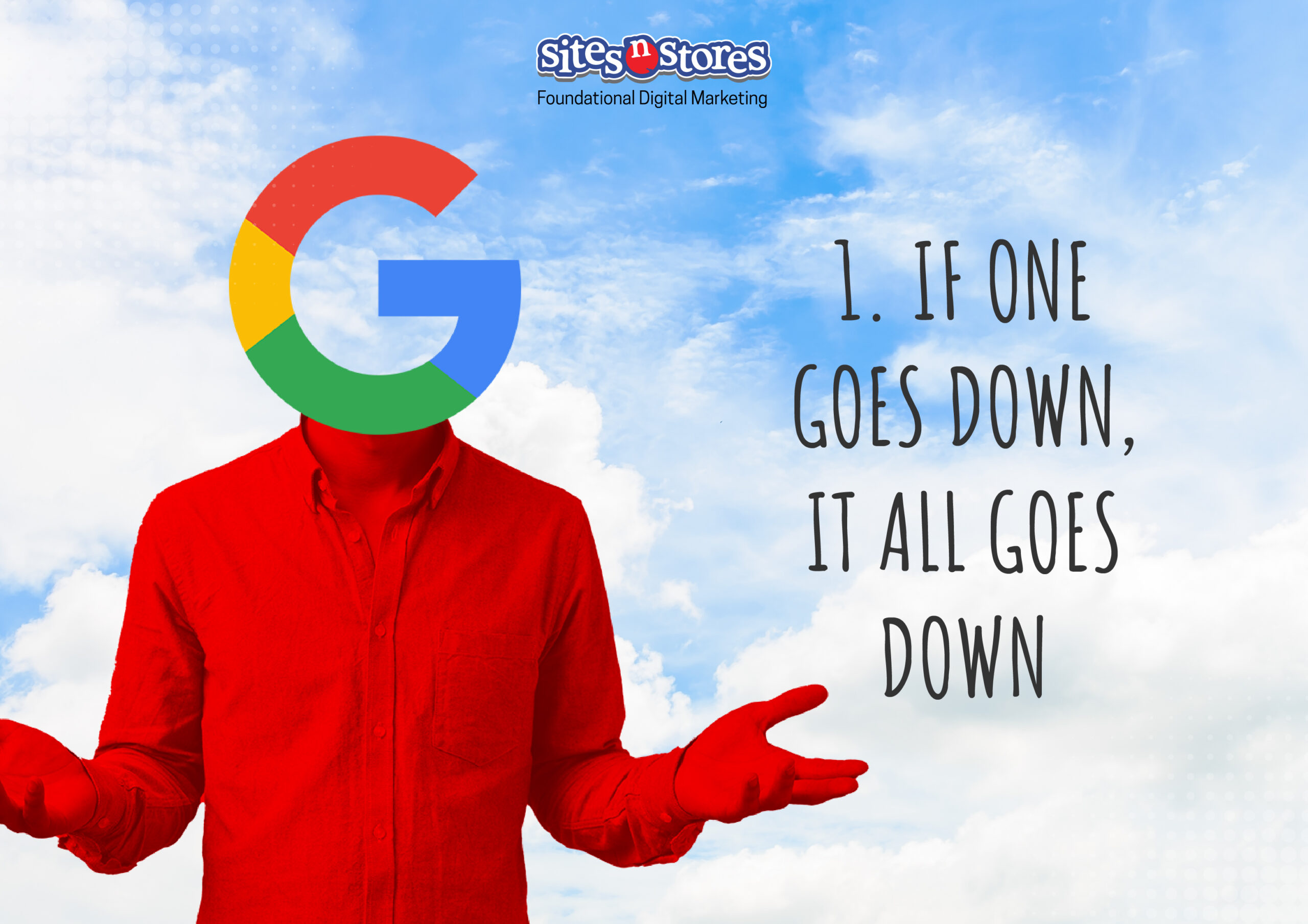
1. If One Goes Down, It All Goes Down
You’ve heard the expression “all goes down together”. Well, exactly the same is true of your Emails and Website. The unfortunate reality of Web Hosting is that you will, at some stage, experience occasional ‘downtime’. This is unavoidable. The major problem with this downtime however, is that if your Email is hosted on the same server, these will invariably be inaccessible for as long as your Website is down. And for most Small Businesses, who rely heavily on the use of Email, losing access to your Email is more than just inconvenient – it’s likely losing you business. If your Email is hosted on a different server and your site goes down, you can at least get business Emails in and out. This goes quite a long way in maintaining some control in what could otherwise be a disaster on your brand and bottom line.
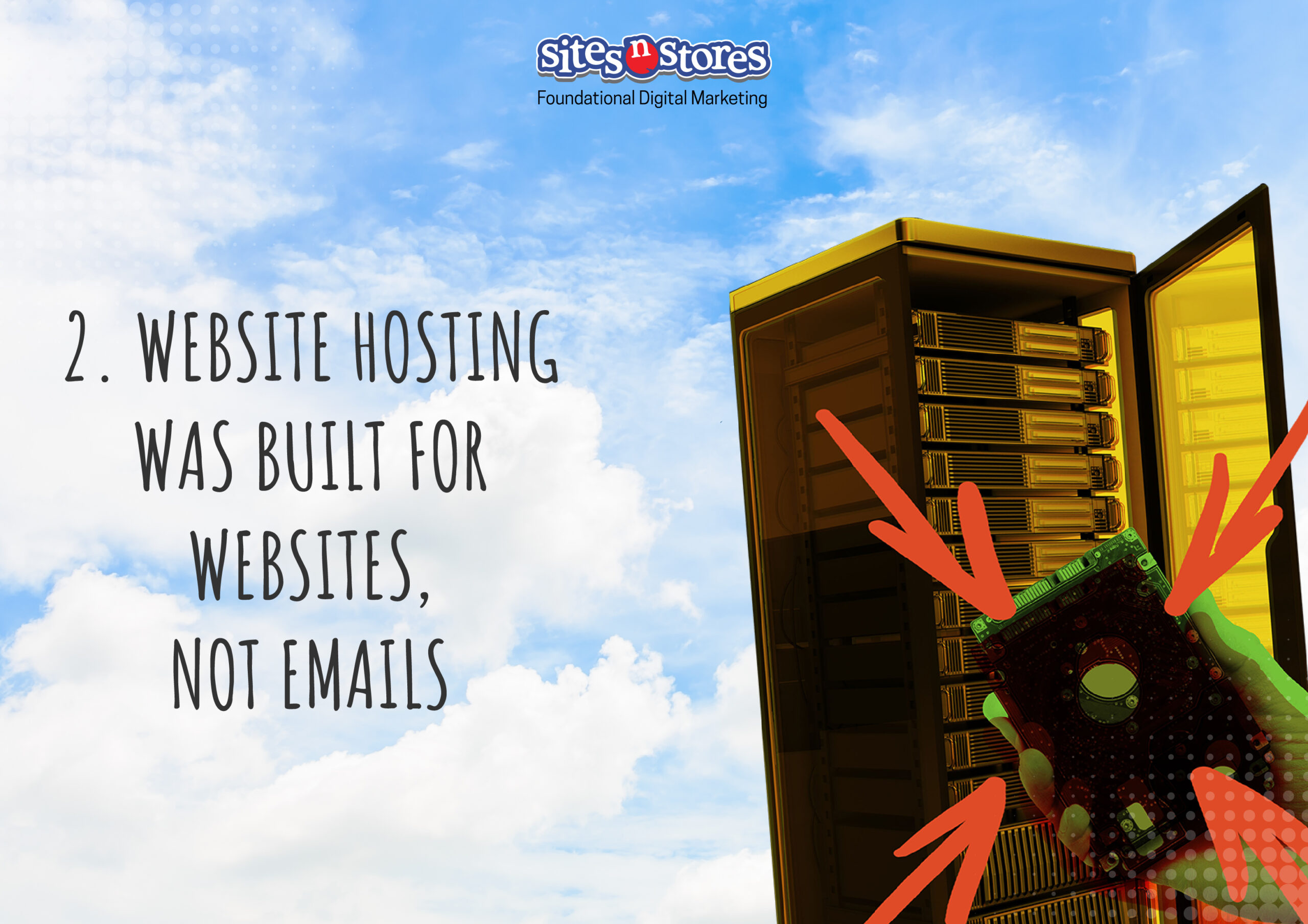
2. Website Hosting was Built for Websites, Not Emails
Website Hosting is, first and foremost, designed for just that – Website hosting. And that’s great! This means you have systems perfectly tailored to provide you with quality hosting. But it also means that any support provided for Email will be secondary to that support given to Web Hosting. With Emails making up such a crucial component of your Small Business’s daily functioning, it’s vital that the support is not second rate. By hosting the two on separate servers, you’ll receive superior support from both your Website Host and your Email Provider, who can offer specialised experience within their particular field of work.
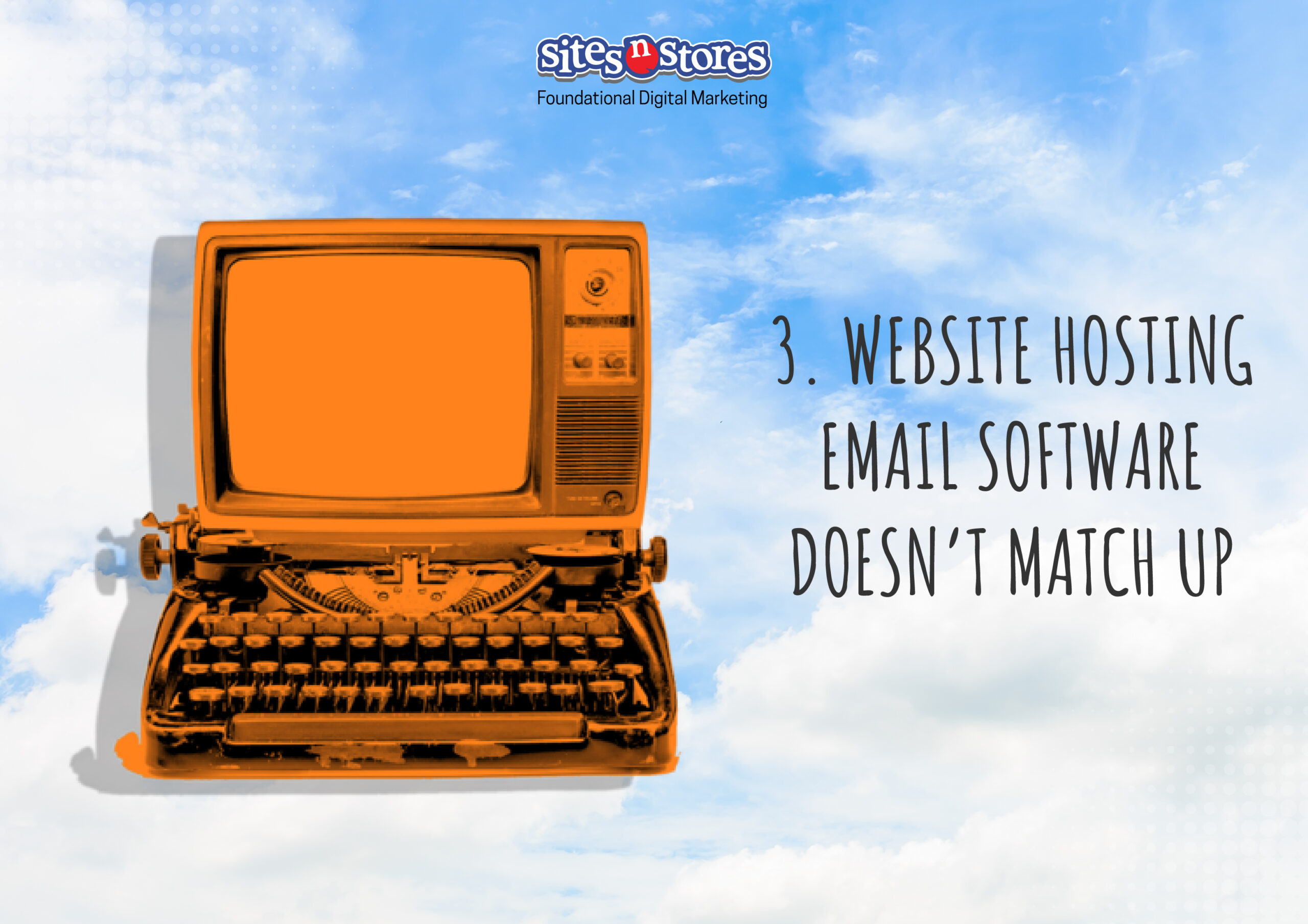
3. Website Hosting Email Software Doesn’t Match Up
Just as was stated above, Website Hosting services was built for Websites, not for managing more complex Emailing systems.. This means that the interface and functionality of Email software is likely to be inferior when using technology focused on supporting and maintaining Websites.
Hosting Websites requires completely different kind of systems and functionalities compared to Email Hosting, making them quite limited in this area and poor at performing routine Email requirements, such as spam control.
While opting to move your Emails to a separate provider may cost a little more money, the systems in place are so much more dependable and rigorous. In this way, the chances of experiencing any major kind of problems or issues is significantly reduced.
By switching Emails to another server, you’ll give yourself peace of mind that you’re investing in the highest quality systems for your Business, and decreasing your chances of losing precious business.
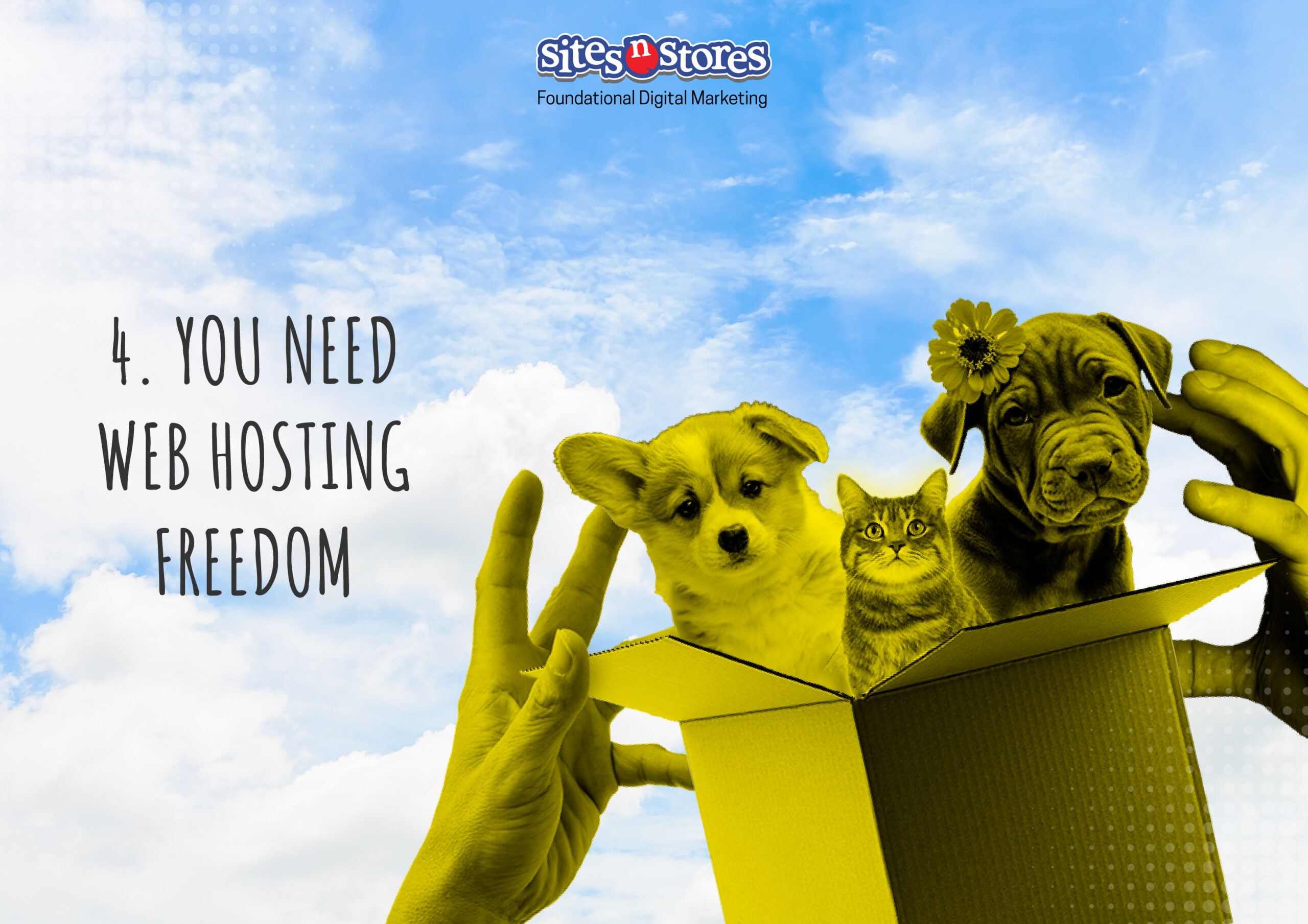
4. You Need Web Hosting Freedom
Another major issue you may experience when it comes to combining your Website and Email Hosting is the lack of portability you could encounter. In the rare occurrence that you need to change servers, you need to be able to break away quickly from your Web Server, taking your Emails with you. If your Emails are connected to your Web Server, this is an incredibly difficult thing to do and is typically a tricky and time-consuming process. If you choose to forgo this complex process, you simply have to admit defeat and desert your Emails altogether. This could mean losing all your contacts and any prior communications you’ve had with customers, suppliers and anyone else who plays an integral role in your Business dealings. By choosing to host your Emails separately from your Website, you’ll be better prepared if the worst happens and you’re forced to change Web Host. You can be safe in knowing that your Emails, contacts and addresses are all safely stored away and still easily accessible at the click of a button. Hopefully after reading this blog you have a better understanding of why you, as a Small Business Owner in the know, should separate your Email Hosting from that of your Website. Emails should not be considered as a kind of afterthought or bonus feature of Website Hosting. Instead, your Email needs to be seen as the invaluable communication tool that it is, and treated as such. Be prepared to invest in precise and professional Email Hosting and you and your Business will reap the benefits tenfold.
Get the Best Website With Our Free Website Checkup Checklist!
So, you've taken our advice and got your Website Hosting sorted, but what about everything else that comes with having a Small Business Website? Our comprehensive Website Checkup Checklist will allow you to create a that will get your Small Business seen! Download this FREE guide today and watch as your Customers flood to your business!



